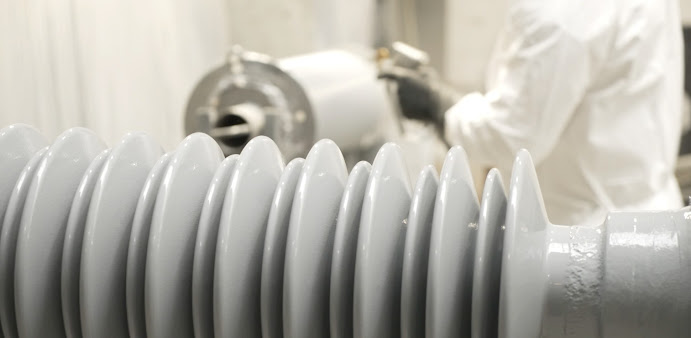What Are The Benefits Of Silicone-coating?
An Introduction
Silicone-coated insulators are an excellent choice for high-voltage overhead wires in polluted areas, guaranteeing optimal performance. In addition, they help lower operating and maintenance expenses by reducing the amount of leaking current. They can also remove the annoying Rust On Electrical Towers with the smoothness of butter. To learn more about it, continue reading!
Why Is Silicone Coating So Popular?
Projects using modern Glass Insulator Coating benefit significantly from the in-house coating. When a product is delivered, it's ready to be installed, and a hydrophobic insulator surface is already present. When compared to traditional porcelain insulator surfaces, de-energizing of substations is no longer necessary, and maintenance costs are lowered to the absolute minimum,
What is the mechanism through which silicone coatings protect against corrosion?
Silicone resins are resistant to ultraviolet light, unlike epoxy and urethane resins. Even after years of exposure to salt spray and UV rays, the silicone polymer-based elastomeric anti-corrosion coating maintains its flexibility. A ready-to-use solution, Silprocoat, can be sprayed right out of the pail after it has been opened and will last for over a decade, even in the harshest circumstances. High Voltage Insulating Silicone Grease can remove Rust On Electrical Towers in an effective manner.
What Are the Advantages Of Silicone Coated Insulators?
A silicone layer is placed on the insulator surface using a unique spray coating technology to prevent leakage currents, discharges, and pollution flashovers. The hydrophobic surface of this silicone layer protects electronics from contamination while also improving their electrical properties, works well with Glass Insulator Coating, and reduces leakage currents in very contaminated environments.
Silicone coating has several advantages:
A high level of self-cleaning ability and long-term resistance to the effects of time and harsh conditions
Due to low molecular weight (LMW) siloxanes migrating into the pollution layer, there will be long-term hydrophobicity.
Pollution flashovers and leakage current suppression
High Voltage Insulating Silicone Grease long-term stability eliminates the need for grease reapplication.
Maintenance costs are lower than with traditional insulator surfaces, such as washing.
Even the most problematic pollutants can be removed with a cloth in excessive pollution deposition (e.g., cement).
The coated surfaces can endure washing at up to 90 bar of pressure (regular application, 25cm distance)
The best of all worlds: porcelain's mechanical strength and silicone rubber's pollution resistance.
Environmentally friendly and non-toxic material
Reliability of transmission as well as conservation of natural resources and the environment by making optimal use of generated electricity
Conclusion
Silicone coating is applied to Porcelain Insulators to reduce leakage current and minimize flashovers caused by insulator contamination (room temperature vulcanizing). Salt, severe temperatures, and corrosive conditions will not impact the coating. The durability of porcelain insulators and the pollution resistance of silicone insulators are advantages of coated porcelain insulators.

Comments
Post a Comment